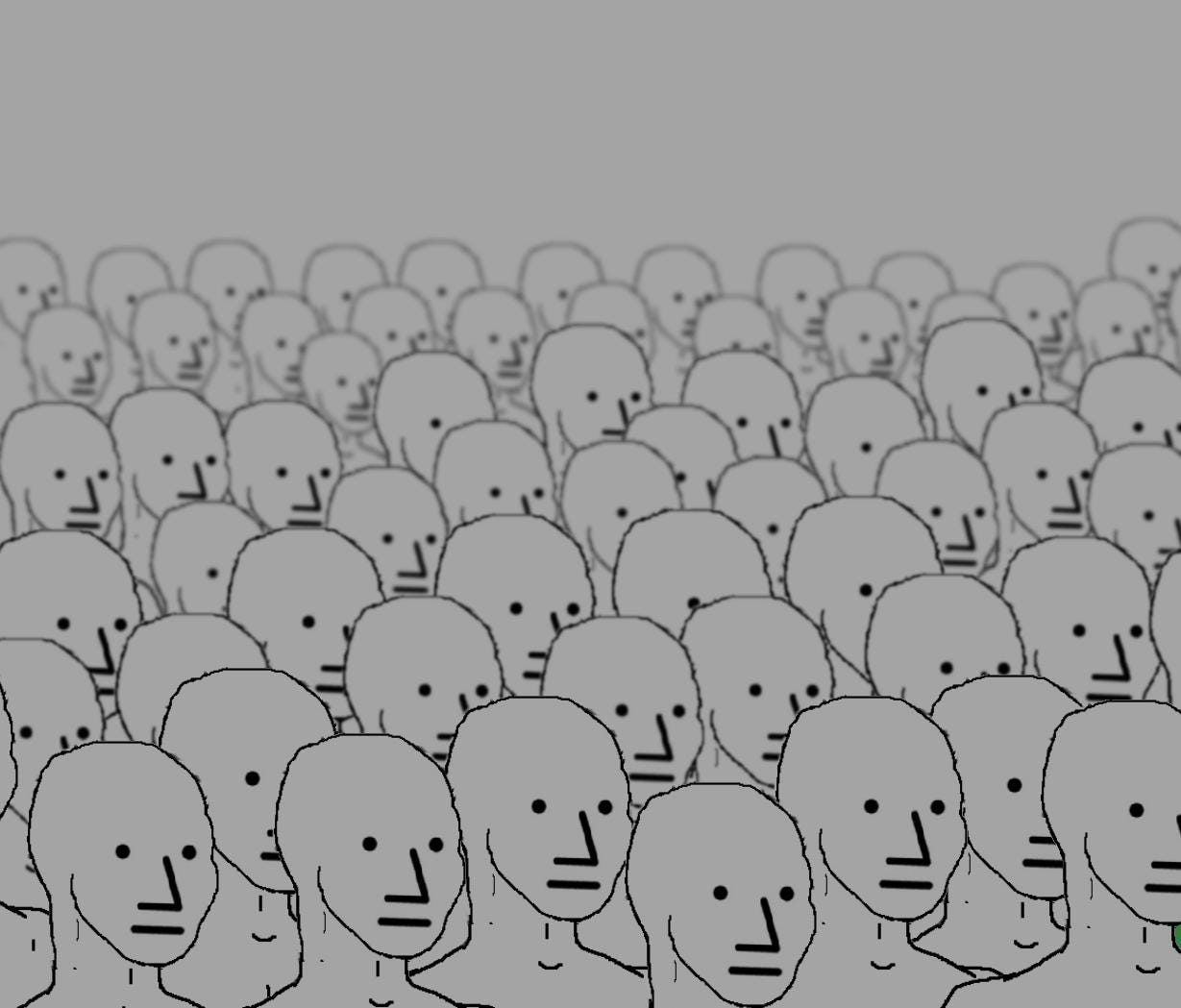"Why You Are Probably An NPC" by Gurwinder
Ever felt life's on autopilot? Dive into how we often follow predictable scripts. Time for some self-reflection?
In Gurwinder Bhogal's insightful article, "Why You Are Probably An NPC," he delves deep into the nuances of human behaviour, using the metaphor of NPCs (Non-Player Characters) from video games to shed light on our own predictability. This exploration becomes even more poignant in an era where algorithms play a significant role in shaping our actions and beliefs. As I share this piece with the "Unintuitive Discourse" community, it's essential to highlight its resonance with our blog's dedication to promoting critical thinking and offering fresh perspectives on humanism and evolution.
Relevance to "Unintuitive Discourse":
"Unintuitive Discourse" stands as a beacon for humanist activism, advocating for positive social change through literature. Gurwinder's article resonates with our dedication to challenging the status quo and promoting humanist values. It offers a critical examination of how societal structures and technological advancements influence our belief systems, making it a valuable resource for our diverse audience, from activists and policymakers to scholars and educators.
Why Our Readers Should Dive In:
This article by Gurwinder delves into the concept of the "NPC" or Non-Player Character, a term originally used to describe video game characters controlled by a computer. The term has evolved to describe real-world humans who exhibit predictable, scripted behaviours. The article discusses the reasons why many people might be considered NPCs and identifies different types of NPCs based on their approach to information and belief formation. Here are the key discussions and talking points:
Human vs. Bot Behaviour: The line between human and bot behaviour is blurring. As algorithms become more sophisticated, they're better at influencing human behaviour, especially on social media platforms.
Brain Functionality: The human brain is often seen as a thinking machine, but it's designed to avoid unnecessary thinking due to the costs associated with cognition. This leads to the brain taking shortcuts in thinking and perception.
Types of NPCs: The article's categorization of individuals based on their approach to information is a reflection of our society's diverse belief-forming behaviours. It's an invitation for introspection and self-awareness.
Conformists: Trust societal consensus and often refer to mainstream sources like Google and Wikipedia. However, relying solely on consensus can lead to misinformation.
Contrarians: Oppose mainstream beliefs, often due to disillusionment with the consensus. They lean towards alternative media sources and can be susceptible to conspiracy theories.
Disciples: Place their trust in a single charismatic figure, adopting their views without much personal reflection.
Tribalists: Form beliefs based on their affiliation with a particular group or tribe. Their beliefs are often influenced by the group's collective mindset rather than individual critical thinking.
Averagers: Take a centrist view on most matters, believing that the truth often lies between extremes. However, they might lack depth in their understanding of issues.
The Dangers of Tribalism: Tribalism can lead to a distorted view of reality, where the desire for group belonging overshadows the pursuit of truth.
A Nudge Towards Self-awareness: Beyond mere observation, Gurwinder's piece is a clarion call for readers to recognize and challenge their cognitive patterns, fostering a more nuanced worldview.
The Role of Media: Gurwinder's article underscores the significant impact of both mainstream and alternative media on public perception and beliefs. Notably, he points out the 400% increase in the mainstream media's usage of terms like "sexist" and "racist" between 2010 and 2019, a trend that may not necessarily reflect actual incidents. This emphasis on the media's shaping of perceptions resonates with "Unintuitive Discourse's" mission to inspire informed and engaged citizens, highlighting the importance of critical thinking in today's information-rich age.
Conclusion: While many of us might exhibit NPC-like tendencies, Gurwinder's article serves as a compelling call to action. It emphasizes the importance of being aware of the cognitive shortcuts our brains often take and underscores the need for a more informed and nuanced understanding of the world.
In championing critical thinking, human rights, and positive social change, "Unintuitive Discourse" finds a kindred spirit in Gurwinder and his work. I wholeheartedly recommend this article, seeing it as a reflection of our shared dedication to shaping the world through informed, thoughtful perspectives







